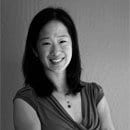
Director of Research
23andMe, Inc.
ASHG: If you could go back to when you were a trainee, what is one piece of advice you would give yourself for your current career?
Dr. Tung: Get involved in activities outside of the lab. I was co-president of the Graduate Students’ Association at UCSF for a few years, and I developed some valuable skills in that role, including the ability to organize and motivate others to work on a large and complex project. If you work within an organization, being able to communicate and negotiate with others, and get to the point quickly, are very useful.
I’ve probably interviewed over a hundred candidates for various positions within 23andMe, most of them scientists. The strongest applicants were the ones who had explored the areas they were most interested in by doing things like taking classes in entrepreneurship, getting an internship at a university tech transfer office, or starting and promoting their own blog.
ASHG: What are your favorite and least favorite parts of your job?
Dr. Tung: I love science, and I love scientists in all their glorious nerdiness. I really enjoy hearing about the results of the work people on our team are doing, thinking about the potential implications, and figuring out what to do next.
What motivates me is the belief that while science for the sake of doing science is lovely, as scientists, we owe the public, the people who fund our science, the greatest benefit possible for their investment. Not only should we use science to improve people’s lives, but we should bring them into the research process so that they can understand and appreciate how it all works.
The hardest part of my job is having to say no. No, we’re not going to do that project. No, that’s not good enough for launch. No, we didn’t get the resource we requested. I believe my job is to set my team up for success and then get out of their way. For the team to be successful, we have to set boundaries for ourselves, and for the company to be successful, resources have to be allocated wisely.
That means not everyone gets what they want, and disappointment is inevitable. But finding good, creative solutions around problems is also one of the more satisfying parts of the job.
ASHG: What do you think the future holds for the field of genetics?
Dr. Tung: Assuming by genetics we mean human genetics, like most, I think it’s just a matter of time before everyone gets sequenced, potentially at birth. That information will be used to optimize disease prevention and treatment.
But maximizing the knowledge we can glean from DNA will be a long and hard road. I’m not sure enough people have lived ever to identify all the potential genetic effects and interactions in a statistically meaningful way, and as we learn more we will have to determine how important those tiny effects really are.
I also think the focus of the field will change a little as other technologies become better and cheaper. A friend of mine dreams of the day when his toilet will monitor his microbiome health. Someday, gene therapy will be a mainstay treatment for certain kinds of diseases.
And at some point, everyone will have their epigenome assessed on top of their genome. These things won’t happen tomorrow, but 30 years ago I was playing my 8-bit Nintendo and listening to cassette tapes, so all we know for sure is that the future will be different. A girl can dream.
Want more interviews? Join the ASHG Trainee Forum to keep up with new ones!
